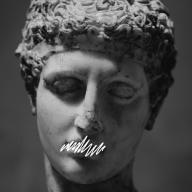In the late '90s, Kweli established himself as an intelligent, politically minded MC as part of Black Star alongside Mos Def. By this point, Kirkland had already set out his stall: both as a guest performer on A Tribe Called Quest's acclaimed 1991 album, The Low End Theory, and as a producer/remixer for the likes of House of Pain, Outkast, the Pharcyde, KRS-One, and Fugees. His work on the title track of the latter act's 1996 album, The Score, won him a Grammy, but this venture didn’t sit right with him. For the next few decades he was equally prolific in terms of output but kept a comparatively lower profile. Meanwhile, Kweli put four solo albums in the U.S. Top 30 and and collaborated with Kanye West and Pharrell Williams.
In the period immediately before the release of Gotham, the duo's debut album, Kweli stayed as busy as ever. Not only did it see him start to unveil Cultural Currency -- an exclusive album for fans who paid for premium access -- but it also saw the publication of his autobiography, Vibrate Higher. The book was evidence that he considered iconic Black writers such as James Baldwin and Richard Wright as influential to him as his hip-hop forbears. Kirkland's schedule had been notably quieter -- his previous work of note being May 2019's The Diam Piece, Vol. 2 -- but he threw himself into the production of Gotham. Despite the previous Covid-19-related working restrictions, the pair found a window in which to safely work together in person. In the resulting sessions, they fashioned an inventive album, rich in imagery of New York and its many personalities. It was issued on Kweli's Javotti Media label in April 2021, preceded by the singles "On Mamas," "Attention Span," and "The Quiet One," the latter of which featured Busta Rhymes. ~ James Wilkinson, Rovi












